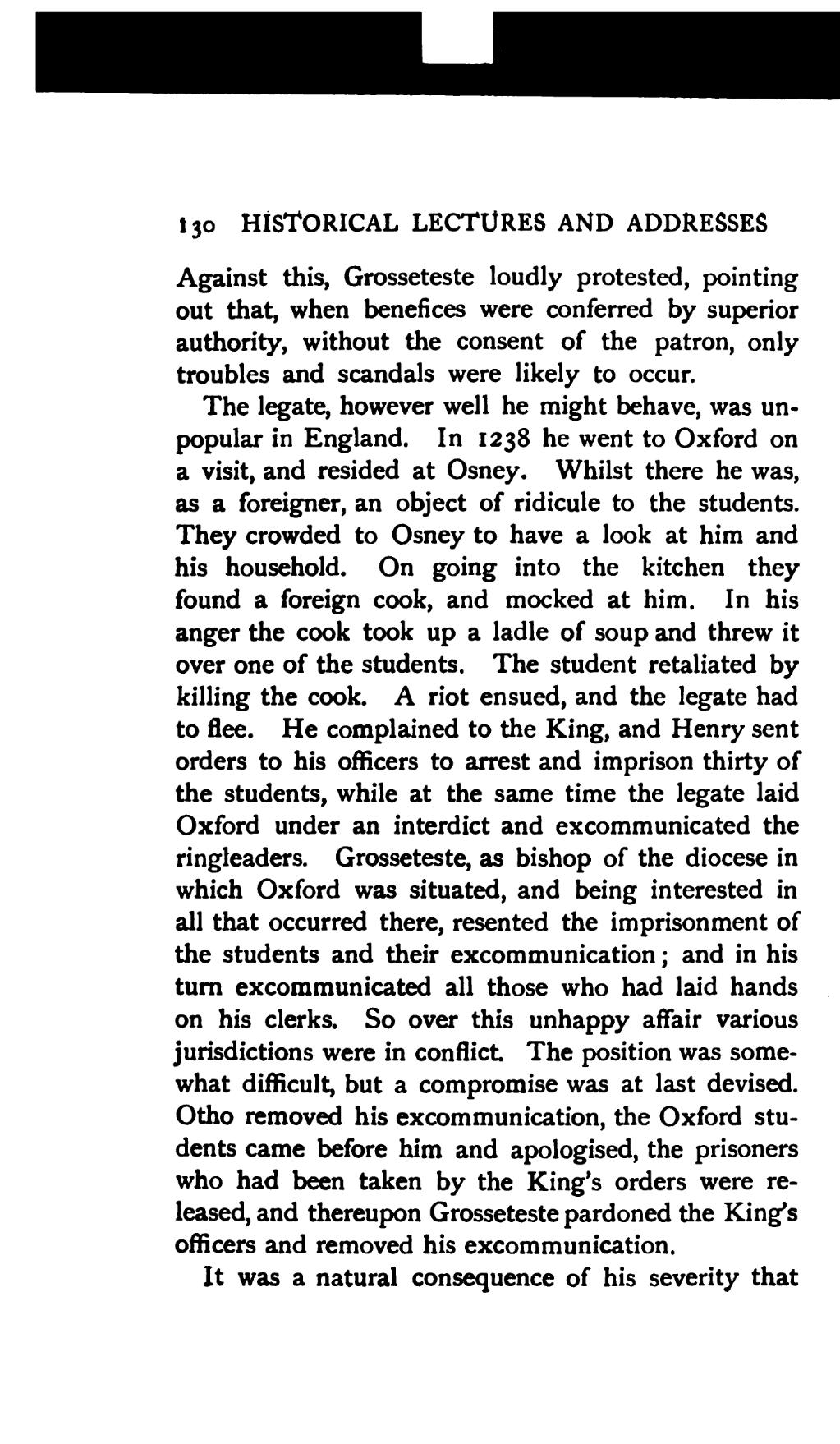Against this, Grosseteste loudly protested, pointing out that, when benefices were conferred by superior authority, without the consent of the patron, only troubles and scandals were likely to occur.
The legate, however well he might behave, was unpopular in England. In 1238 he went to Oxford on a visit, and resided at Osney. Whilst there he was, as a foreigner, an object of ridicule to the students. They crowded to Osney to have a look at him and his household. On going into the kitchen they found a foreign cook, and mocked at him. In his anger the cook took up a ladle of soup and threw it over one of the students. The student retaliated by killing the cook. A riot ensued, and the legate had to flee. He complained to the King, and Henry sent orders to his officers to arrest and imprison thirty of the students, while at the same time the legate laid Oxford under an interdict and excommunicated the ringleaders. Grosseteste, as bishop of the diocese in which Oxford was situated, and being interested in all that occurred there, resented the imprisonment of the students and their excommunication; and in his turn excommunicated all those who had laid hands on his clerks. So over this unhappy affair various jurisdictions were in conflict The position was somewhat difficult, but a compromise was at last devised. Otho removed his excommunication, the Oxford students came before him and apologised, the prisoners who had been taken by the King's orders were released, and thereupon Grosseteste pardoned the King's officers and removed his excommunication.
It was a natural consequence of his severity that
